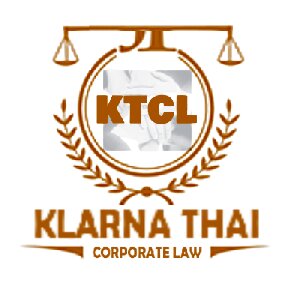Best Adoption Lawyers in Watthana
Share your needs with us, get contacted by law firms.
Free. Takes 2 min.
Free Guide to Hiring a Family Lawyer
List of the best lawyers in Watthana, Thailand
Thailand Adoption Legal Articles
Browse our 1 legal article about Adoption in Thailand written by expert lawyers.
- Adopting a Child in Thailand
- In Thailand, adopting a child involves a complex legal process that transfers parental rights and responsibilities from the biological parents to the adoptive parents. Types of AdoptionsThere are two categories of adoption in Thailand:Domestic adoption involves adoptive parents - whether Thai or international - whose residence is within Thailand.International adoption,... Read more →
About Adoption Law in Watthana, Thailand
Adoption in Watthana, a prominent district in Bangkok, Thailand, is regulated under Thai law, specifically the Child Adoption Act and the Civil and Commercial Code. The adoption process seeks to ensure the welfare, best interests, and legal protection of children who need permanent families. Adoption can be undertaken by Thai nationals or foreigners, but it involves strict legal procedures, thorough screening, and close supervision by authorities. Legal adoption establishes a permanent parent-child relationship between adopters and the adopted child, conferring all associated rights and responsibilities.
Why You May Need a Lawyer
Adoption involves complex legal requirements that can be overwhelming without professional guidance. You may need a lawyer if you are:
- Unsure about eligibility requirements or documentation
- A foreigner wishing to adopt a Thai child, as international adoptions can be highly regulated
- Navigating consent issues from biological parents or guardians
- Responding to complications during home studies or assessments
- Adopting a stepchild or relative, which also has specific legal steps
- Dealing with legal translations or court procedures
- Wanting to ensure your rights and the child’s rights are protected under Thai and home country law
A legal expert helps avoid delays, ensures compliance with local and international law, and represents you before relevant authorities if any disputes or challenges arise.
Local Laws Overview
Adoption in Watthana and throughout Thailand is governed mainly by the Child Adoption Act B.E. 2522 and the Civil and Commercial Code. Key aspects include:
- Prospective adoptive parents must be at least 25 years old and at least 15 years older than the child.
- Foreigners wishing to adopt must satisfy residency or legal domicile requirements and sometimes work through authorized agencies.
- Consent from biological parents or guardians is mandatory, except when deemed impossible or against the child's best interests.
- All adoptive placements are subject to investigation and approval by the Department of Children and Youth under the Ministry of Social Development and Human Security.
- Court procedures must be completed for the adoption to be recognized legally.
- Home studies and post-adoption reporting are typically required, especially for international adoptions.
- If one spouse wishes to adopt, both must give consent unless exceptional circumstances exist.
Strict adherence to process and documentation is essential. Violating protocols can result in delays, legal nullification, or criminal penalties.
Frequently Asked Questions
What are the eligibility requirements for adoptive parents in Watthana, Thailand?
Prospective adoptive parents must be at least 25 years old, at least 15 years older than the adopted child, and legally competent. Foreigners may be subject to residency requirements.
Can foreigners adopt a Thai child in Watthana?
Yes, but they must comply with additional rules. Foreigners typically need to work with licensed agencies, pass eligibility checks, and often must reside legally in Thailand or be represented by an accredited organization.
How long does the adoption process take?
The timeline varies but can take several months to over a year, depending on the specifics of the case, documentation, and whether domestic or international adoption is being pursued.
Do both members of a married couple need to consent to the adoption?
Yes, even if only one spouse intends to adopt, the consent of the other spouse is generally required unless excused under exceptional legal circumstances.
Is it possible to adopt a relative or a stepchild?
Yes, Thai law allows adoption of relatives or stepchildren, but all legal steps must be fully followed, including investigations and consent processes.
Who grants final approval for adoptions in Watthana?
The Department of Children and Youth under the Ministry of Social Development and Human Security manages and oversees the approval process, with final legalization by the Thai courts.
Is a home study required?
Yes, a home study is typically conducted to assess the prospective adoptive parents' suitability and home environment.
What documents are necessary to initiate an adoption?
Key documents include identification, marriage certificates, proof of income, health clearances, police records, and supporting documents demonstrating the ability to care for the child.
Can adopted children inherit from their adoptive parents?
Yes, legally adopted children have equivalent rights as biological children, including inheritance rights under Thai law.
What happens if the required legal process is not followed?
Without completing legal procedures, the adoption will not be legally recognized. This can lead to difficulties regarding the child's legal status, inheritance, and international travel.
Additional Resources
For more information and assistance with adoption in Watthana or elsewhere in Thailand, you can consider contacting the following:
- Department of Children and Youth, Ministry of Social Development and Human Security
- Central Juvenile and Family Court, Bangkok
- Thai Red Cross Children Home (support for orphaned or abandoned children)
- Local embassies or consulates (especially for foreigners)
- Registered non-governmental organizations specializing in child welfare
- Local law firms with expertise in family law and adoption procedures
Next Steps
If you are considering adoption in Watthana, Thailand, here is how you can proceed:
- Consult with a qualified family lawyer experienced in Thai adoption law to confirm your eligibility and clarify the process.
- Gather all personal documentation required for the application.
- Contact the Department of Children and Youth or a licensed adoption agency to initiate the process.
- Attend any mandatory counseling or educational sessions regarding adoption.
- Cooperate with social workers during home studies and follow all legal instructions carefully.
- Be prepared for post-adoption reporting and supervision if required, especially in international cases.
Legal guidance is essential at every step to ensure your adoption is handled smoothly, lawfully, and in the best interest of the child.
Lawzana helps you find the best lawyers and law firms in Watthana through a curated and pre-screened list of qualified legal professionals. Our platform offers rankings and detailed profiles of attorneys and law firms, allowing you to compare based on practice areas, including Adoption, experience, and client feedback.
Each profile includes a description of the firm's areas of practice, client reviews, team members and partners, year of establishment, spoken languages, office locations, contact information, social media presence, and any published articles or resources. Most firms on our platform speak English and are experienced in both local and international legal matters.
Get a quote from top-rated law firms in Watthana, Thailand — quickly, securely, and without unnecessary hassle.
Disclaimer:
The information provided on this page is for general informational purposes only and does not constitute legal advice. While we strive to ensure the accuracy and relevance of the content, legal information may change over time, and interpretations of the law can vary. You should always consult with a qualified legal professional for advice specific to your situation.
We disclaim all liability for actions taken or not taken based on the content of this page. If you believe any information is incorrect or outdated, please contact us, and we will review and update it where appropriate.












